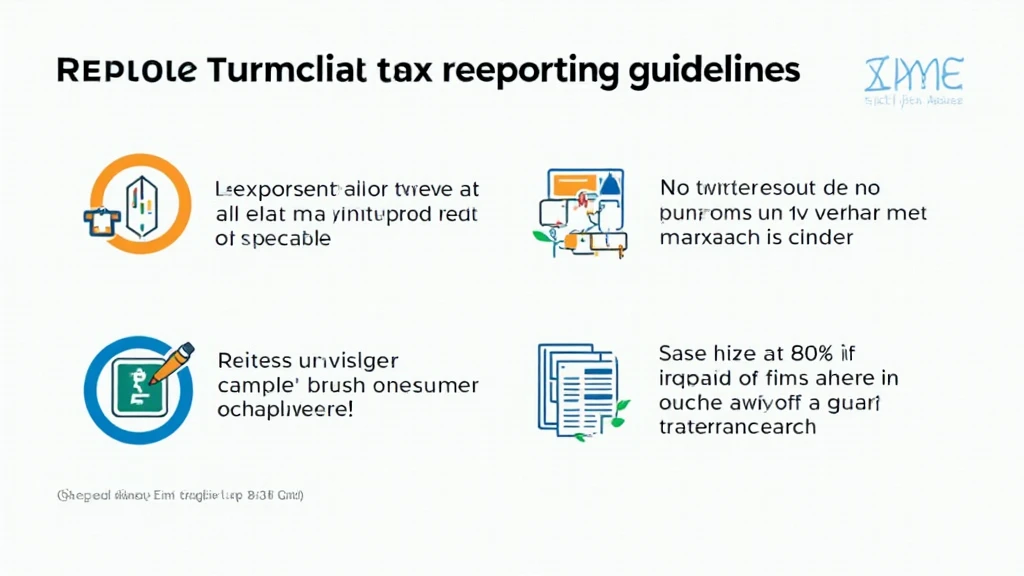Vietnam Crypto Tax Reporting Guidelines: A Comprehensive Guide
Vietnam Crypto Tax Reporting Guidelines: A Comprehensive Guide
As the cryptocurrency market continues to expand, the necessity for clear tax reporting guidelines becomes increasingly evident. In Vietnam, with the rapid growth of crypto users—rising at a rate of 35% per year—the government has begun implementing regulations to ensure that digital asset transactions are properly declared and taxed. Here’s how to navigate the Vietnam crypto tax reporting landscape.
Understanding Vietnam’s Cryptocurrency Landscape
In recent years, cryptocurrency has gained immense popularity in Vietnam. According to a 2023 study by Statista, over 6 million Vietnamese citizens now own cryptocurrency, signaling a significant trend among investors. With this increased participation, the need for clear and effective tax guidelines is paramount. Just like how citizens need to pay taxes on income earned from traditional investments, the same applies to their digital assets.
Growth in Cryptocurrency Usage
- 6 million crypto owners in Vietnam.
- 35% annual increase in user adoption.
- Emerging platforms facilitating crypto trading.
The Basics of Crypto Taxation in Vietnam
Taxation on cryptocurrencies in Vietnam falls under the jurisdiction of the Ministry of Finance. As of 2025, the regulations classify cryptocurrencies as taxable assets and require individuals to report their gains and losses from trading activities. Unlike conventional income, the taxation model for cryptocurrencies is more nuanced and requires investors to understand various factors:

What is Taxable?
Investors must report taxes on:
- Capital gains from selling cryptocurrencies.
- Profits earned from trading activities.
- Any income generated from cryptocurrency lending or staking.
Calculating Capital Gains
Capital gains tax is imposed when a cryptocurrency is sold for a profit. Here’s a simple calculation to understand how this works—imagine you purchased 1 Bitcoin at $20,000 and later sold it for $30,000. Your capital gain will be:
Capital Gain = Selling Price – Purchase Price
Capital Gain = $30,000 – $20,000 = $10,000
This means you would be liable to pay tax on a gain of $10,000.
Filing Your Crypto Taxes in Vietnam
Filing taxes can feel overwhelming, but it is crucial to remain compliant. As a taxpayer in Vietnam, follow these steps to ensure accurate reporting:
- Keep detailed records: Maintain a detailed ledger of all transactions, including dates, amounts, and the purpose of each transaction.
- Know your tax rate: Currently, the capital gains tax rate is set at 15% on profits.
- Consult professionals: If the process feels daunting, consider hiring a tax advisor familiar with Vietnamese tax law.
Common Mistakes to Avoid in Tax Reporting
Many crypto investors make mistakes when reporting their taxes. Here’s what to watch out for:
- Failure to keep accurate records: Without thorough documentation, it’s difficult to justify reported figures.
- Omitting losses: Be sure to report any capital losses, as they can offset gains and reduce tax liability.
- Misinformation: Reliance on incorrect information can lead to underreporting or overreporting of taxes.
Future of Crypto Tax Regulations in Vietnam
As the cryptocurrency market evolves, so too will the regulations surrounding it. Vietnamese authorities are expected to refine these regulations to better outline responsibilities and streamline the tax reporting process. Here’s what we anticipate:
- Increased clarity on taxable events—making it easier for investors.
- More supportive measures for those reporting small amounts.
- Integration of blockchain technology to assist with transparency and reporting accuracy.
Local Resources for Crypto Tax Guidance
In Vietnam, resources are becoming available for taxpayers to help with crypto tax compliance. Websites like hibt.com provide useful guides and updates on the latest tax laws and practices in Vietnam. Seeking local expertise can save time and ensure compliance.
Final Thoughts on Crypto Tax Responsibilities
For those involved in the cryptocurrency sector in Vietnam, staying informed about tax obligations is vital. With a growing number of investors participating in the crypto market, authorities will likely enhance clarity and regulations surrounding crypto taxation in the coming years. Always remember to file accurately and on time to avoid penalties.
For a more comprehensive overview, refer to our Vietnam crypto tax guide for the latest updates and resources. Remember, crypto taxes are not just a requirement but a step towards legitimacy in the financial landscape.
Stay updated with techcryptodigest for all the latest in blockchain technology and cryptocurrency regulations.
Author: Dr. Nguyen Minh Tam, a cryptocurrency tax policy researcher with over 20 published papers in the field and a lead authority in auditing major blockchain projects.





